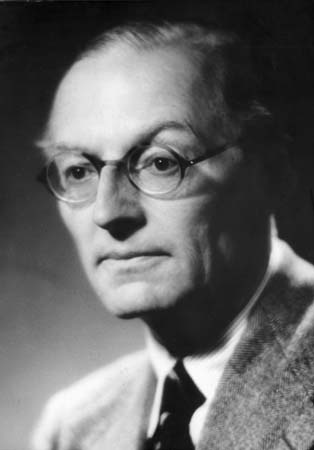Bacon, Francis Thomas
British engineer
byname Tom Bacon
born , Dec. 21, 1904, Billericay, Essex, Eng.
died May 24, 1992
 British engineer who developed the first practical hydrogen-oxygen fuel cells (fuel cell), which convert air and fuel directly into electricity through electrochemical processes.
British engineer who developed the first practical hydrogen-oxygen fuel cells (fuel cell), which convert air and fuel directly into electricity through electrochemical processes.A graduate of Eton College and of Trinity College, Cambridge (B.A., 1925; M.A., 1946), Bacon became intrigued with fuel cells while working for the electrical company C.A. Parsons & Co. Ltd. in Newcastle-on-Tyne (1925–40). Although Sir William Grove had discovered the principle of fuel cells in 1842, they were considered a scientific curiosity until the early 1940s, when Bacon, then working at King's College, Cambridge, proposed their use in submarines. He continued his research with the Anti-submarine Experimental Establishment, then returned to Cambridge (1946), where he demonstrated a successful six-kilowatt fuel cell (1959).
The first practical application of this high-efficiency, pollution-free technology was in the Apollo (Apollo program) space vehicles of the United States, which used the alkaline fuel cells to provide in-flight power, heat, and clean drinking water, a by-product of the electrochemical reaction. Bacon sought new applications for fuel cells as a principal consultant to National Research Development Corp. (1956–62), Energy Conservation Ltd. (1962–71), and U.K. Atomic Energy Authority (1971–73). By the end of the century, the technology was being developed internationally. He was made an Officer of the Order of the British Empire (1967), elected a fellow of the Royal Society (1973), and awarded the first Grove Medal (1991).
- Vesey, Denmark
- vesicular exanthema
- vesicular stomatitis
- vesiculitis
- Vesoul
- Vespasian
- vesper bat
- vespers
- Vespucci, Amerigo
- vessel
- vessel flute
- Vesta
- Vestal Virgins
- Vesta Tilley
- Vestdijk, Simon
- Vesterålen
- Vest Fjord
- vestibulocochlear nerve
- vestibulo-ocular reflex
- Vestini
- Vestlandet
- Vestmanna Islands
- Vesto Melvin Slipher
- Vestris family
- Vestris, Gaétan